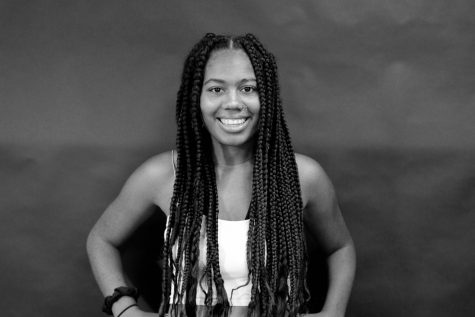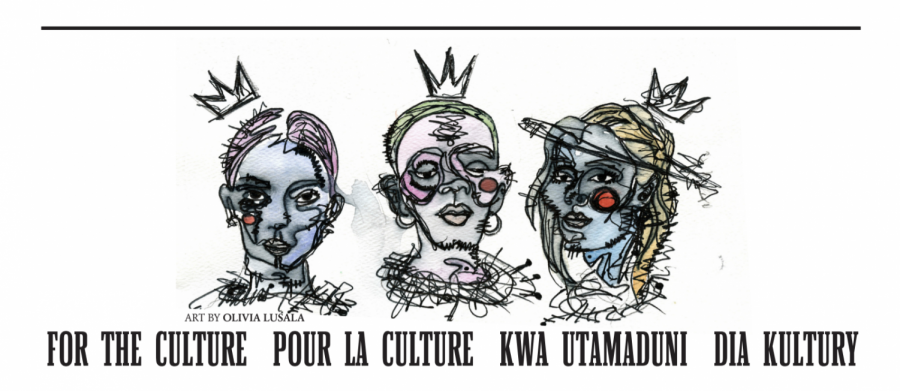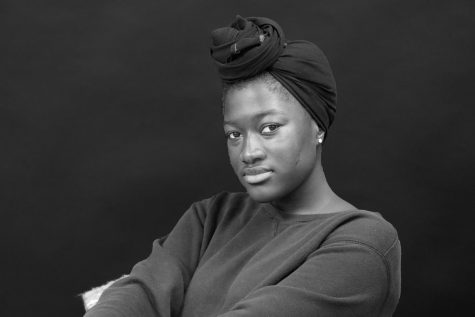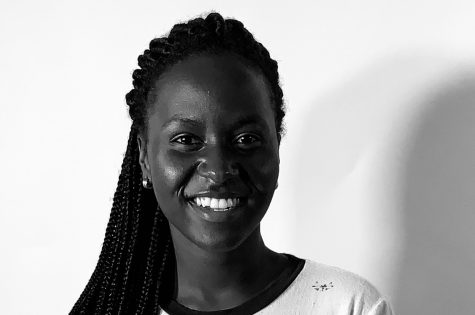Who Ought To Use the N-Word
Disclaimer: This article contains language that some readers may deem offensive.
There is no situation in which non-Black people should feel comfortable using the N-word. While I am not here to tell Black people how they should interpret a word that they may have a complicated relationship with, I will say that non-Black people should not be saying it.
Let’s revisit (though I am sure it is one that we are well aware of) the history of the N-word. According to CNN, the English word nigger, now considered to be a racialized slur, stems from its Latin root niger, simply meaning black. As a result of the African Slave Trade, the word went on to be used in reference to any dark-skinned person perceived to be of African descent. The N-word was used to distinguish Blacks, particularly enslaved Blacks, as subhuman creatures, inherently lesser than their white superiors. This mentality further enabled the treatment of Blacks as property, who had no agency over how they moved through the world, what they would be referred to as, or even what happened to their own bodies. Despite the belief that the N-word is just a word, When we consider its history and origin, the degrees of separation between the oppressive name and its modern day counterparts become considerably smaller.
Though institutionalized African chattel slavery was abolished over 150 years ago, its legacy was able to persist in the form of legalized segregation, housing discrimination, lynchings, the racially targeted war on drugs campaign, and the N-word, amongst others. The N-word was and is still used to remind Black people that they are inferior to their white counterparts, and that they will never be fully human. In fact while the United States was still in its youth in 1787, each Black individual was constitutionally declared to be a mere 3/5 of a (white) human being. This policy, formally known as the Three-Fifths Compromise, would not be rescinded until 1868, with the passage of the 14th Amendment. It was not until a full three years after the end of the Civil War that institutionally supported chattel slavery was stopped. The government greenlighted the idea that Black people were not fully human and the N-word was, at its core, a word symbolizing that toxic ideology.
As you might expect, Black people did not have a say in any of these decisions. Knowing what I know, it doesn’t make sense to me that a non-Black person, who is familiar with the history of the word and the many ways it has been used to control and degrade Black communities, would consciously use it (my one exception being whilst teaching young non-Black children about the word’s history and why they should keep it out of their mouths). It’s hurtful and frustrating that there are people who haven’t had their human rights systematically finessed for centuries, and still choose to use the N-word. Not gonna lie, it’s also pretty wild to me that there are non-Black people of color who feel bold enough to use this word knowing damn well that they could easily satirize their own racialized epithets. Even wilder, there are people out there that really, actually, wake up every single day, get out of bed, breathe the same air that I breathe, and seem to have convinced themselves that the word has no deeper meaning.
When people who aren’t Black, and don’t know what it means to have your Blackness be used as a measure of your humanity, are bold enough to use the N-word around me, I automatically feel unsafe. I automatically know that these people are not my friends. That’s because when you aren’t Black and you use the N-word around Black people who have not expressed a desire* for you to do so, you are usually one of two things: ignorant, or hateful. I don’t automatically assume the worst in people, but if you use the N-word and you aren’t Black there are things that I will know to be true about you. BECAUSE WHY ELSE DO Y’ALL WANT TO USE THE N-WORD SO BAD???????? Maybe it’s because you believe that your right to freedom of speech is more important than my right to life, liberty, to happiness. You could possibly believe that a word that was used to tear the culture and identity out of my ancestors is “just a word”. Maybe you just don’t care that it happened at all. At the end of the day, I know that I can’t trust you.
I used to think that the N-word had been reclaimed. My understanding of reclamation was that by dropping the hard-R sound at the end of the word and slipping it into Black music and casual conversation, Black people had successfully taken the sting out of the N-word. However, while some Black people may have reclaimed the N-word, not all Black people are the same. There are many Blacks out there who are still disgusted and quite shook when ANYONE uses it, let alone a non-Black person. Unless a majority of the Black community embraces universal use of the word, such as much of the LGBT community has with the word queer, then reclamation doesn’t work, and I don’t see that happening any time soon.
Since the First Amendment thankfully protects an individual’s right to freedom of speech and freedom of expression in the United States, the use of the N-word is constitutionally protected. This essentially means that anyone can use it without fear of legal sanction, assuming it is not delivered in the form of Hate Speech. What this ultimately indicates is that the N-word debate is not an argument about who can use the N-word, but rather if they should.
One PBS feature aims to help educators teach Mark Twain’s Huckleberry Finn, which notably includes the N-word a total of 219 times. This piece does an excellent job of summarizing the current “controversy” surrounding the N-word. One excerpt from the column includes a quote from Langston Hughes, famous author and activist of the Harlem Renaissance era, in which he states, “Used rightly or wrongly, ironically or seriously, of necessity for the sake of realism, or impishly for the sake of comedy, it doesn’t matter. Negroes do not like it in any book or play whatsoever…The word nigger, you see, sums up for us who are colored all the bitter years of insult and struggle in America.”
A 2014 article by the Washington Post acknowledges yet another point of argument. An excerpt from the article reads,
“One of the biggest problems in confronting the n-word is that, for decades now, there have existed two n-words, one that ends in “er” and one that ends in “a.” For many, they have distinctly different meanings — the “er” version linked to the word’s hateful, racist origins, the other more a term of endearment.”
Journalist and scholar Ta-Nehisi Coates, author of the acclaimed essay “The Case for Reparations,” addresses this claim when responding to a question about the N-word and how it can be received differently depending upon who is using it with whom and in what setting.
“Words don’t have meaning without context. It’s the same thing with words within any community,” said Coates. “My wife with her girlfriends will use the word b*tch. I don’t do that. I don’t join in. And perhaps more importantly, I don’t have the desire to do it.”
In his response, Coates implies that there is no significant difference between the two words. Each can be equally as jarring as the other when used out of the context of the Black community. Even within the Black community, the issue of who may use the N-word remains a controversial topic. Some swear that in order to deflate the vicious power that the word possesses, it must be reclaimed as a term of power and endearment. Rappers and hip-hop artists that align themselves with this argument use it prolifically in their work. Pulitzer prize-winning artist Kendrick Lamar recently reopened discussion on who may use the word when he publicly reprimanded a white fan who sang the word as she rapped along to his own song lyrics.
While some Blacks support reclamation of the N-word, others insist that it must be eliminated from the English vocabulary completely. In 2007, members of the NAACP held a public funeral for the word, complete with a coffin and a burial, chock full of symbolism. Still, others within the Black community believe that as long as there is no bad intent, anyone may use the word as they please. It’s only a word, after all. But is it really?
In a conversation about the N-word, Neal A. Lester, Dean of Humanities at Arizona State University, commented on the idea of a double standard wherein the N-word is acceptable when used within the Black community, but not outside of it, remarking, “There’s a double standard about a lot of stuff. There are certain things that I would never say. In my relationship with my wife, who is not African-American, I would never imagine her using that word, no matter how angry she was with me…”
Though its use may remain disputed, one thing that I know for certain is that I am absolutely against the word being used outside of the Black community in a non-educational environment. Not only do many people still find it extremely demeaning and downright disrespectful, but claiming that it is “only a word” enables the erasure of hundreds of years of pain and suffering. I feel as though it is my responsibility as a person of African descent to educate people on the complexities of the N-word and how much harm it can still do. While I do not necessarily support its full and uninhibited use by any person, I do believe that a black person should choose for themselves whether or not they believe that the word can truly be reclaimed.
Seeing that we are a racially divided country, I believe that it is not only gratifying, but crucial that we are able to have open dialogue on issues pertaining to race. There is no situation in which I would be able to stop being Black (pending a sudden and rapid case of Michael Jackson-esque vitiligo). Regardless of whether I acknowledge it or not, my race informs not only the ways in which I move through the world, but the way in which others perceive me. When I say that I am not comfortable with you saying the N-word, and rather than listening, you get angry, it is not just about one person disagreeing with another, it is a Black person’s voice once again being silenced in the conversation about how Black people are treated in America. Instead of getting mad next time someone tells you not to use the N-word (in any context), I hope that you will consider the different factors at play every time you choose to use it.
I do not, by any means, intend to tell you that you cannot use the N-word if you aren’t Black, whether you’re reading from a passage, quoting from an outside source, singing to a song, or using it in conversation. However, I would like you to take into consideration that every time you do, it will bring me and many others great pain, confusion, and heartache. Every time you feel empowered enough to use it, I am hurt by it. Every time you justify your use of it, I trust you a little bit less. The issue of you using the N-word is not merely a question of freedom of speech, but rather a question of mutual respect. Do you respect me, my history, and my emotions enough to hold back?
*Just because your one Black friend said that they didn’t care if you used the N-word doesn’t mean every Black person is chill with it. If you read a lil’ farther down, you’ll see that, contrary to popular belief, not all Black people are the same. Just because you say it with them, doesn’t mean you should say it around me.
Changes have been made to this article since it originally appeared in print.
Your donation will support the student journalists of Iowa City High School. For 2023, we are trying to update our video and photo studio, purchase new cameras and attend journalism conferences.

Olivia Lusala enjoys applying pigments to paper in a pleasing assortment of color. When she grows up she aims to have a kazoo solo on the Broadway stage....






































